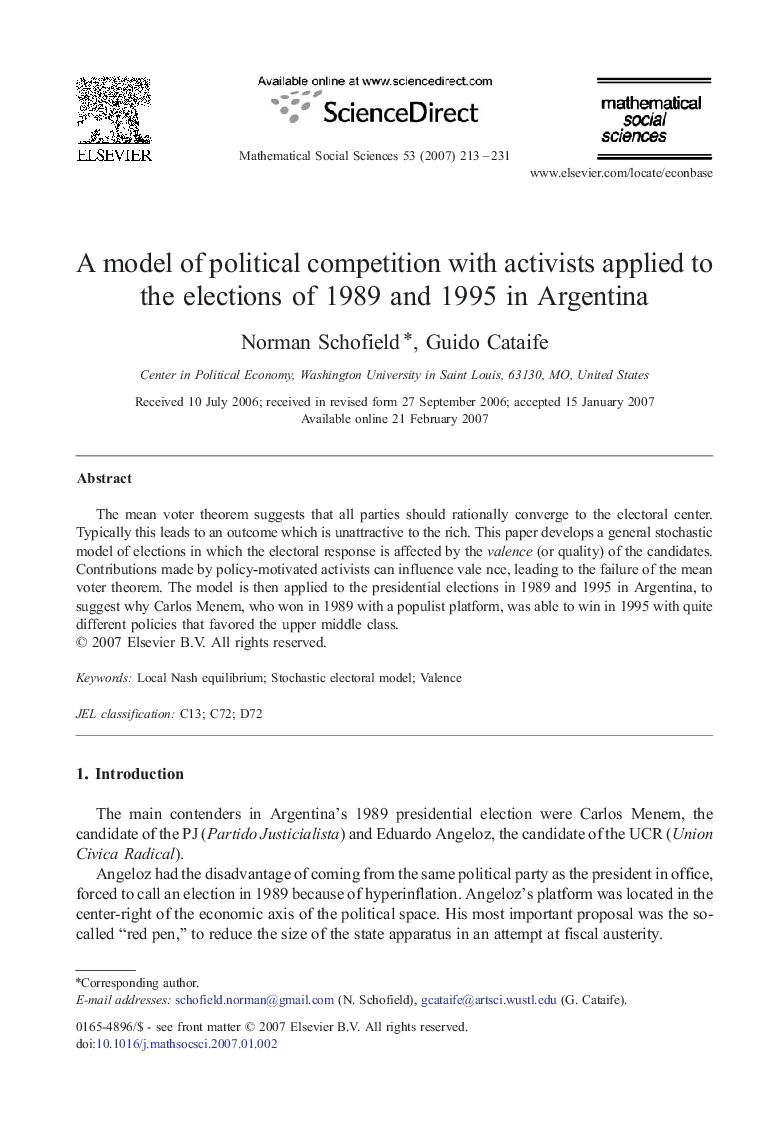| Article ID | Journal | Published Year | Pages | File Type |
|---|---|---|---|---|
| 973052 | Mathematical Social Sciences | 2007 | 19 Pages |
Abstract
The mean voter theorem suggests that all parties should rationally converge to the electoral center. Typically this leads to an outcome which is unattractive to the rich. This paper develops a general stochastic model of elections in which the electoral response is affected by the valence (or quality) of the candidates. Contributions made by policy-motivated activists can influence vale nce, leading to the failure of the mean voter theorem. The model is then applied to the presidential elections in 1989 and 1995 in Argentina, to suggest why Carlos Menem, who won in 1989 with a populist platform, was able to win in 1995 with quite different policies that favored the upper middle class.
Related Topics
Physical Sciences and Engineering
Mathematics
Applied Mathematics
Authors
Norman Schofield, Guido Cataife,
